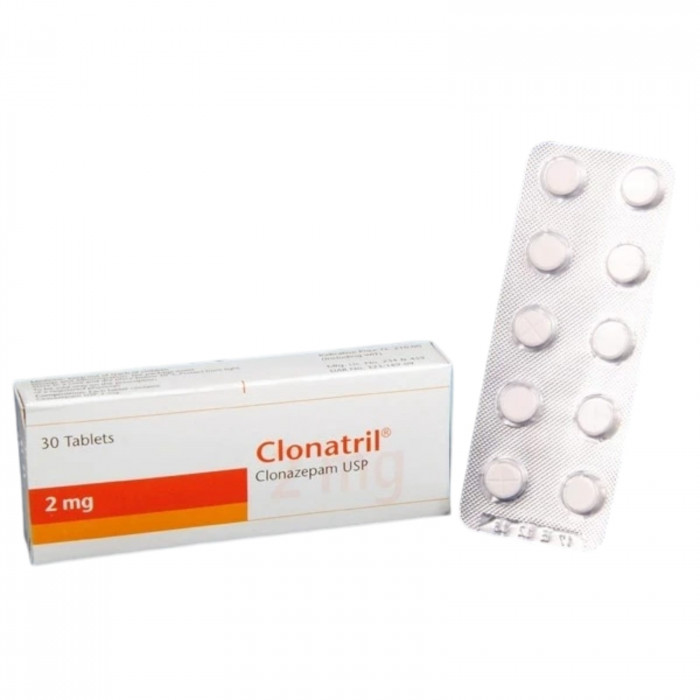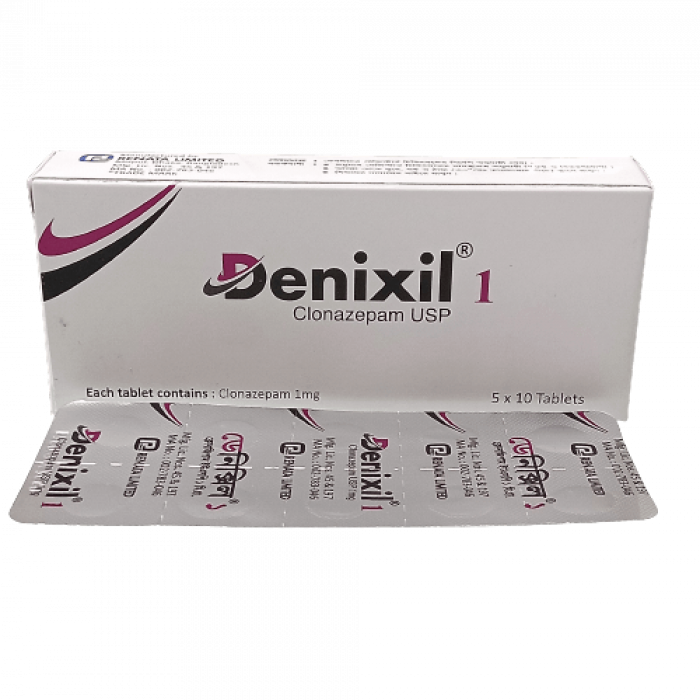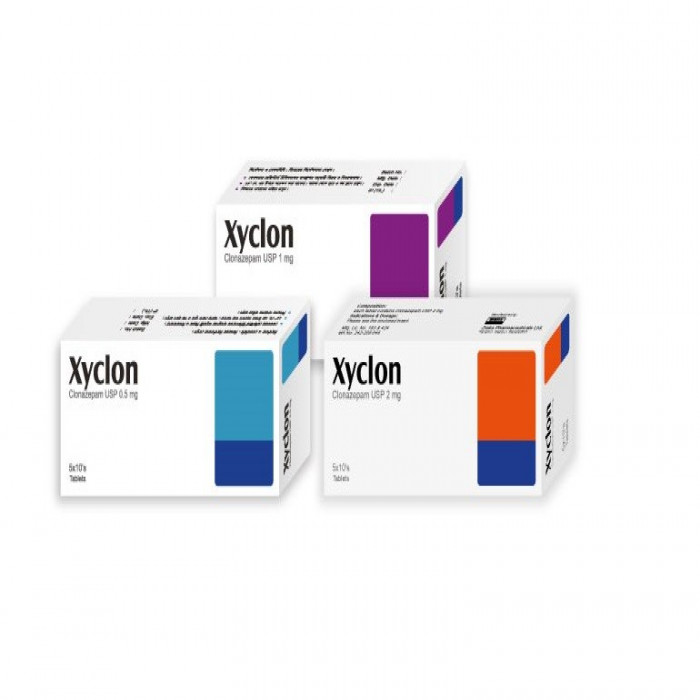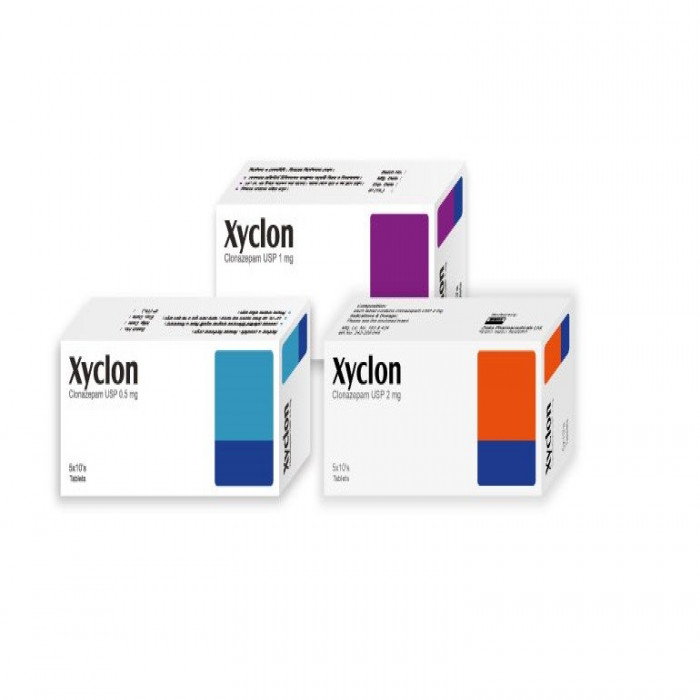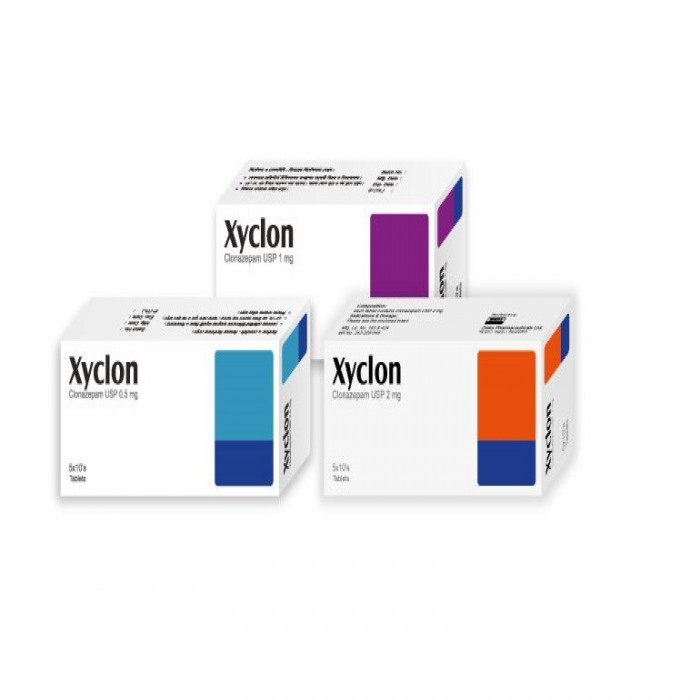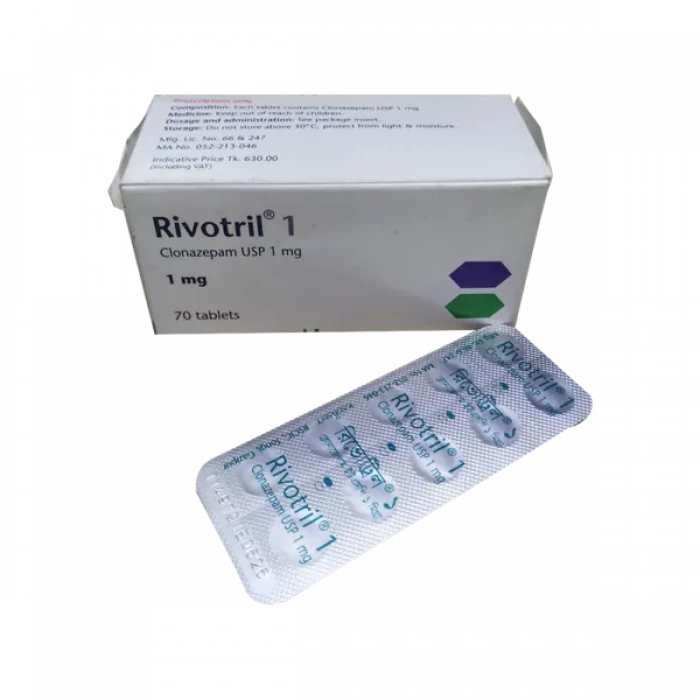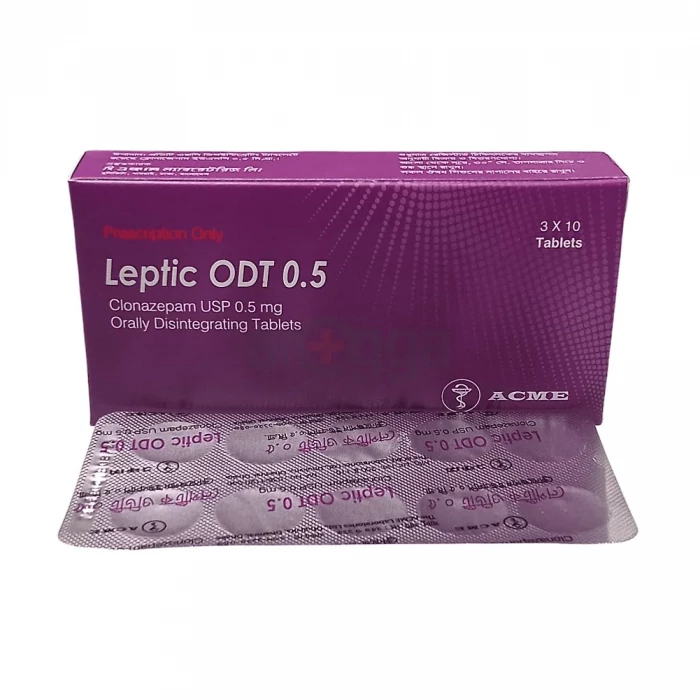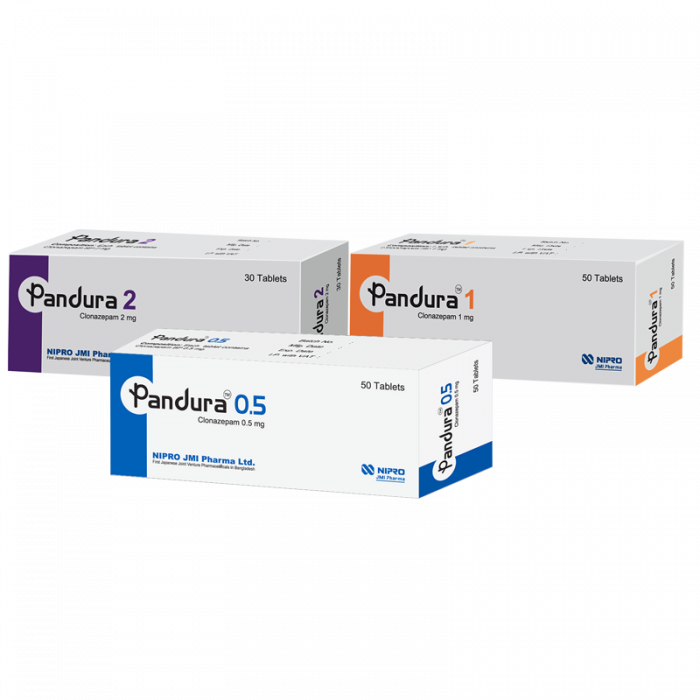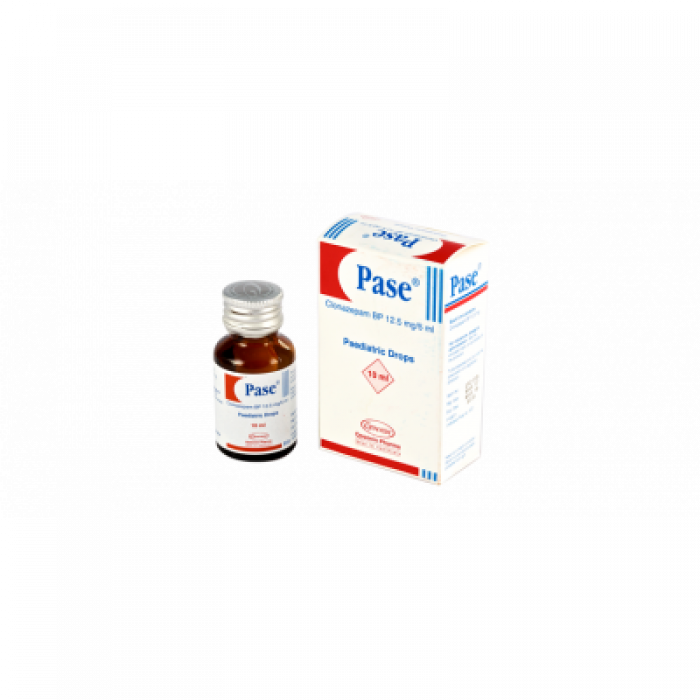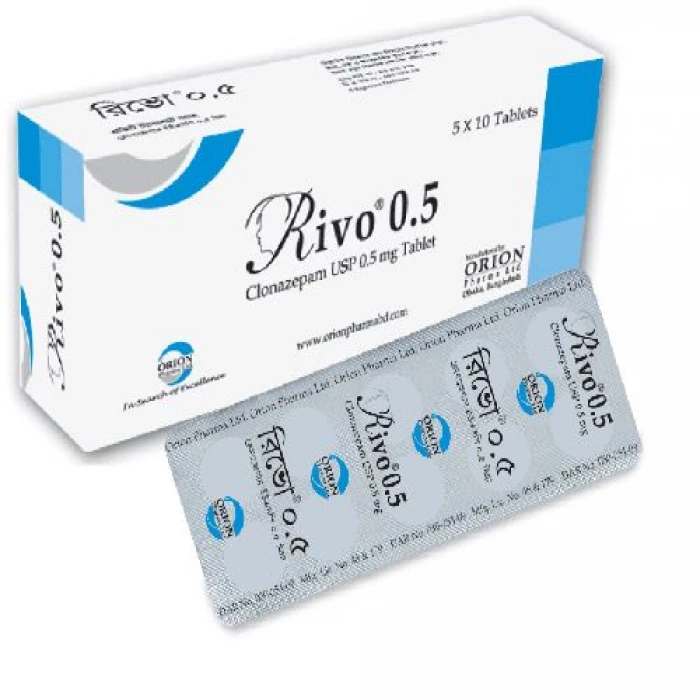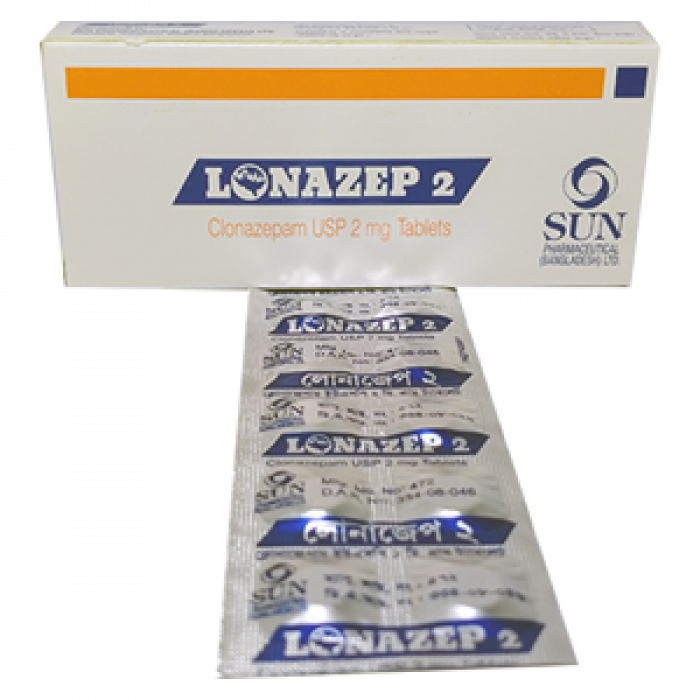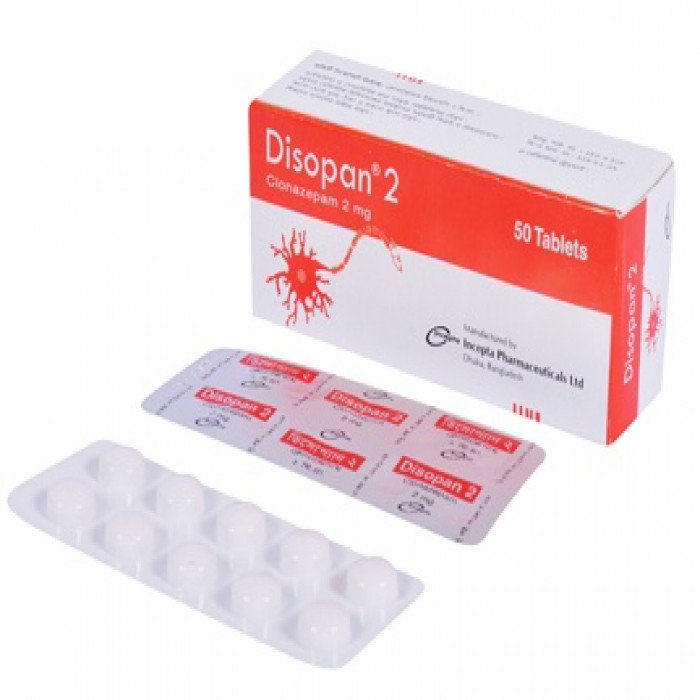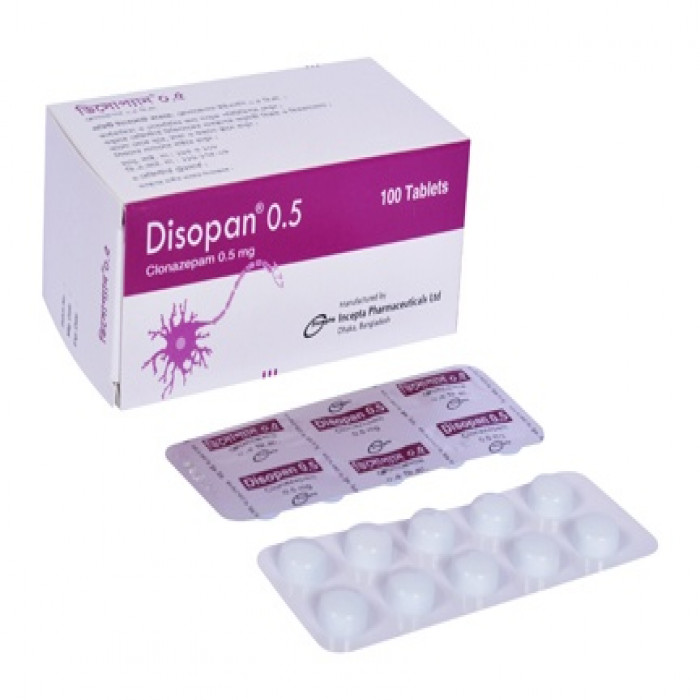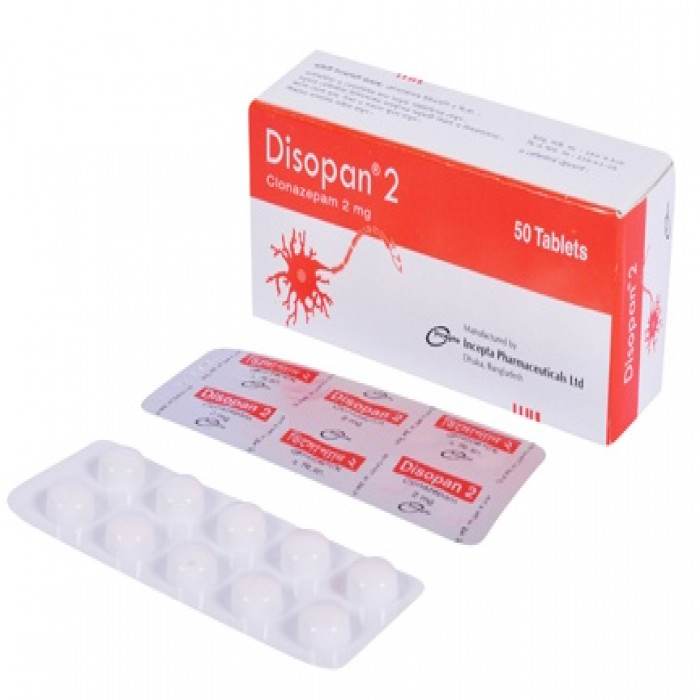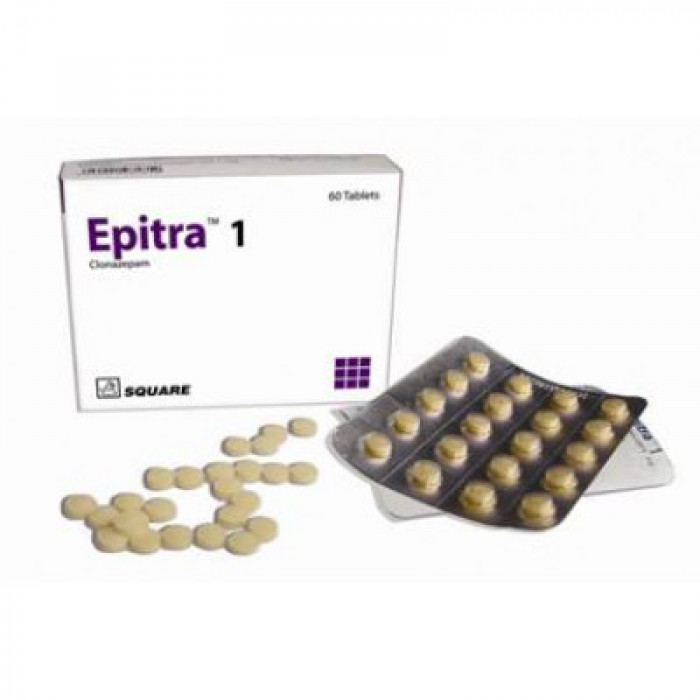
✔ 100% Authentic Product
👁️ Currently Viewing 3748
Epitra 1mg Tablet 10pcs
Clonazepam is used in the treatment of anxiety disorder and epilepsy/seizures.
📄Prescription Required
Discount
Price: ৳ 86
MRP:
৳
90
5%
Off

100% Genuine Products, Guaranteed

Safe & Secure Payments, Always

Fast, Secure & Efficient Delivery

Proper Packaging
 Cash on Delivery - All over Bangladesh
Cash on Delivery - All over Bangladesh Regular Delivery - 12-24 Hours, Dhaka City* Charge Tk.39-59
Regular Delivery - 12-24 Hours, Dhaka City* Charge Tk.39-59 Regular Delivery - 24-48 Hours, Other Cities* Charge Tk.99-110
Regular Delivery - 24-48 Hours, Other Cities* Charge Tk.99-110
🌙 রমযান অফার 🌙
 ফ্রি ডেলিভারিঃ - ৭৯৯ টাকা+ অর্ডারে, ঢাকা
শহরে
ফ্রি ডেলিভারিঃ - ৭৯৯ টাকা+ অর্ডারে, ঢাকা
শহরে ফ্রি ডেলিভারিঃ - ২৭৯৯ টাকা+ অর্ডারে, ঢাকার
বাহিরে
ফ্রি ডেলিভারিঃ - ২৭৯৯ টাকা+ অর্ডারে, ঢাকার
বাহিরে
📲 মোবাইল অ্যাপ অর্ডারে সাশ্রয় বেশী
-
Google Play Store থেকে ডাউনলোড
-
Apple Store থেকে ডাউনলোড
100% Genuine Products, Guaranteed
Safe & Secure Payments, Always
Fast, Secure & Efficient Delivery
Proper Packaging
 Cash on Delivery - All over Bangladesh
Cash on Delivery - All over Bangladesh Regular Delivery - 12-24 Hours, Dhaka City* Charge Tk.39-59
Regular Delivery - 12-24 Hours, Dhaka City* Charge Tk.39-59 Regular Delivery - 24-48 Hours, Other Cities* Charge Tk.99-110
Regular Delivery - 24-48 Hours, Other Cities* Charge Tk.99-110 ফ্রি ডেলিভারিঃ - ৭৯৯ টাকা+ অর্ডারে, ঢাকা
শহরে
ফ্রি ডেলিভারিঃ - ৭৯৯ টাকা+ অর্ডারে, ঢাকা
শহরে ফ্রি ডেলিভারিঃ - ২৭৯৯ টাকা+ অর্ডারে, ঢাকার
বাহিরে
ফ্রি ডেলিভারিঃ - ২৭৯৯ টাকা+ অর্ডারে, ঢাকার
বাহিরে- Google Play Store থেকে ডাউনলোড
- Apple Store থেকে ডাউনলোড
🌙 রমযান অফার 🌙
📲 মোবাইল অ্যাপ অর্ডারে সাশ্রয় বেশী
✅ Description:
Seizures, also known as fits, are sudden bursts of electrical activity in the brain. They can manifest in various ways and are classified into two main types:
- Generalized seizures: These seizures affect the entire brain from the onset. They can cause loss of consciousness and lead to generalized convulsions, during which the person may experience uncontrollable muscle twitches and spasms throughout their body.
- Partial seizures: Also called focal seizures, these seizures affect only one part of the brain. Depending on the area affected, partial seizures can cause a variety of symptoms, such as altered sensations, involuntary movements, or changes in emotions or behavior.
Mild seizures may be challenging to recognize, as they can last only a few seconds and may involve a brief loss of awareness. Stronger seizures can result in more pronounced symptoms and may last from a few seconds to several minutes.
Several factors can trigger seizures, including:
- Lack of sleep
- High fever
- Stress
- Bright lights
- Caffeine
- Certain medications
- Alcohol consumption
- Skipping meals or overeating
Safety Advices

Alcohol
UNSAFE
It's advised to abstain from alcohol consumption while on Epitra 1mg Tablet. Alcohol intake can trigger seizures, worsen side effects, and lead to severe sedation.

Pregnancy
UNSAFE
Epitra 1mg Tablet is generally not recommended during pregnancy unless deemed necessary by a doctor. Consult your healthcare provider before use.

Breastfeeding
UNSAFE
Avoid using Epitra 1mg Tablet while breastfeeding as it may pass into breast milk, potentially causing drowsiness and feeding difficulties. Consult your doctor before use.

Driving
Epitra 1mg Tablet may induce drowsiness or sleepiness, impairing your ability to drive or operate machinery. Avoid these activities while taking this medication.

Kidney
CAUTION
Use caution when taking Epitra 1mg Tablet in patients with severe kidney disease. Consult your doctor before use.

Liver
CAUTION
Epitra 1mg Tablet is not recommended for patients with severe liver disease. Use with caution in those with mild to moderate liver issues. Consult your doctor before use.
✔️ Panic disorder:
Panic disorder is an anxiety disorder characterized by recurrent and unexpected episodes of intense fear or panic, often without any identifiable trigger or cause. While it's natural for people to feel anxious or panicked in response to stressful situations, individuals with panic disorder experience these feelings more extremely and frequently.
- Panic attacks: These are sudden and intense periods of fear or discomfort that peak within minutes. Symptoms of a panic attack may include palpitations, sweating, trembling, shortness of breath, chest pain, nausea, dizziness, derealization (feeling detached from oneself or surroundings), and fear of losing control or dying.
- Anticipatory anxiety: Individuals with panic disorder often experience persistent worry or fear about having future panic attacks. This anticipatory anxiety can significantly impact their daily functioning and quality of life.
- Agoraphobia: Some individuals with panic disorder develop agoraphobia, which is a fear of being in situations or places where escape might be difficult or embarrassing, or where help may not be available in the event of a panic attack. This can lead to avoidance of certain places or situations, such as crowded spaces, public transportation, or being alone outside the home.
Panic disorder can have a significant impact on various aspects of a person's life, including their relationships, work or school performance, and overall well-being.
✔️ Involuntary muscle spasms:
Involuntary muscle spasms occur when there is disruption or dysfunction in the normal nerve signals that control muscle movement. These spasms result in sudden, involuntary contractions of the muscles, which can be painful and uncomfortable. Here are some key points about involuntary muscle spasms:
Causes: Muscle spasms can be caused by various factors, including:
- Nerve damage or irritation
- Dehydration and electrolyte imbalances (e.g., low levels of potassium, calcium, or magnesium)
- Muscle fatigue or overuse
- Stress or anxiety
- Exposure to extreme temperatures (e.g., heat or cold)
- Infections or inflammatory conditions affecting the muscles
- Wearing tight or restrictive clothing
Symptoms: The symptoms of muscle spasms may include:
- Muscle tightness or stiffness
- Sudden, involuntary contractions of the muscles
- Difficulty moving the affected muscle or joint
- Pain or discomfort in the muscles or joints
- Changes in posture or movement patterns
Triggers: Certain factors or triggers can exacerbate muscle spasms, such as:
- Fatigue or muscle exhaustion
- Emotional stress or tension
- Excessive physical activity or exercise
- Prolonged sitting or standing in one position
- Exposure to extreme temperatures or weather conditions
- Dehydration or inadequate fluid intake
Management: Treatment for muscle spasms depends on the underlying cause and severity of the symptoms. Some strategies for managing muscle spasms include:
- Rest and gentle stretching exercises
- Applying heat or cold therapy to the affected area
- Maintaining proper hydration and electrolyte balance
- Practicing stress-reduction techniques, such as deep breathing or meditation
- Avoiding triggers, such as tight clothing or extreme temperatures
- Seeking medical attention for persistent or severe muscle spasms, especially if they are accompanied by other symptoms or interfere with daily activities
Overall, addressing the underlying cause of muscle spasms and adopting healthy lifestyle habits can help reduce the frequency and severity of involuntary muscle contractions.
✔️ Restless Leg Syndrome (RLS)
Restless Leg Syndrome (RLS) is a neurological disorder characterized by an irresistible urge to move the legs, often accompanied by uncomfortable sensations in the legs. Here are some key points about Restless Leg Syndrome:
Individuals with RLS may experience the following symptoms:
- An uncontrollable urge to move the legs is usually due to uncomfortable sensations such as crawling, creeping, tingling, or itching.
- Symptoms typically worsen during periods of inactivity or rest, particularly in the evening or at night.
- Movement or walking may temporarily alleviate the symptoms, providing temporary relief.
Location of Symptoms: Restless Leg Syndrome primarily affects the legs, but it can also involve other parts of the body, such as the arms.
Impact on Sleep: RLS symptoms often disrupt sleep patterns, leading to difficulty falling asleep or staying asleep. This can result in daytime fatigue and impaired functioning.
The exact cause of RLS is not fully understood, but it may involve abnormalities in dopamine levels or dysfunction in the central nervous system. Certain factors, such as genetics, iron deficiency, pregnancy, kidney disease, and certain medications, may increase the risk of developing RLS or exacerbate symptoms.
Diagnosis of RLS is based on a clinical evaluation of symptoms, medical history, and exclusion of other conditions that may mimic RLS. There are no specific diagnostic tests for RLS, but certain criteria, such as the International Restless Legs Syndrome Study Group criteria, may be used to aid in diagnosis.
Treatment for RLS focuses on alleviating symptoms and improving sleep quality. Strategies may include lifestyle modifications (e.g., regular exercise, avoiding caffeine and alcohol), iron supplementation (if iron deficiency is present), medications to increase dopamine levels or regulate nerve activity, and relaxation techniques.
Individuals with RLS can manage symptoms by incorporating lifestyle changes, such as establishing a regular sleep schedule, practicing relaxation techniques, and avoiding triggers that worsen symptoms. It is important to work closely with a healthcare provider to develop an individualized treatment plan that addresses the specific needs and preferences of each patient.
Overall, RLS can significantly impact the quality of life due to its effects on sleep and daily functioning. However, with appropriate management and support, many individuals with RLS can effectively manage their symptoms and improve their overall well-being.
✔️ Dosage & Administration:
Oral Dosage for Adults with Seizure Disorders:
- Begin with 1.5 mg per day, divided into three doses.
- Adjust the dosage by 0.5-1 mg every three days, up to a maximum of 20 mg per day.
Oral Dosage for Adults with Panic Disorder:
- Start with 0.25 mg twice daily.
- After three days, increase to 1 mg per day as needed.
Pediatric Patients:
- To minimize drowsiness, infants and children (up to 10 years or 30 kg) should take 0.01-0.03 mg/kg/day, not exceeding 0.05 mg/kg/day, split into multiple doses.
✔️ Drug Interactions:
- Epitra 1mg Tablet may interact with various medications, including opioid analgesics, antipsychotics, antidepressants, blood pressure medications, antibiotics, and anticonvulsants.
- Limit or avoid the consumption of caffeine and alcohol.
✔️ Contraindications:
- Avoid prescribing Epitra 1mg Tablet to patients with a history of hypersensitivity to benzodiazepines or those with significant liver disease.
- It can be administered to patients with open-angle glaucoma who are receiving appropriate treatment but should not be used in cases of acute narrow-angle glaucoma.
✔️ Side Effects:
- The most commonly observed side effects are related to central nervous system (CNS) depression, including drowsiness and ataxia.
- Other potential side effects may include abnormal eye movements, coma, tremors, confusion, depression, amnesia, hallucinations, insomnia, and palpitations.
✔️ Pregnancy & Lactation:
- Epitra 1mg Tablet should be considered during pregnancy only when the potential benefits outweigh the risks to the fetus.
- Women taking the medication should avoid breastfeeding.
✔️ Drug Warnings:
- Do not take Epitra 1mg Tablet if allergic to clonazepam or any benzodiazepine class of drugs.
- Inform your doctor about any lung disease, glaucoma, muscle weakness, sleep apnea, depression, mood problems, suicidal behavior/thoughts, liver or kidney problems.
- Taking clonazepam with opioid medicines can cause severe drowsiness, breathing problems, coma, and death.
- Use Epitra 1mg Tablet with extreme caution in patients with a history of alcohol or drug abuse.
- Do not stop taking Epitra 1mg Tablet suddenly as it may cause withdrawal symptoms.
✔️ Storage Conditions:
- Keep Epitra 1mg Tablet out of sight and reach of children
- Store at room temperature
⚠️Disclaimer:
At ePharma, we’re committed to providing accurate and accessible health information. However, all content is intended for informational purposes only and should not replace medical advice from a qualified physician. Please consult your healthcare provider for personalized guidance. We aim to support, not substitute, the doctor-patient relationship.




